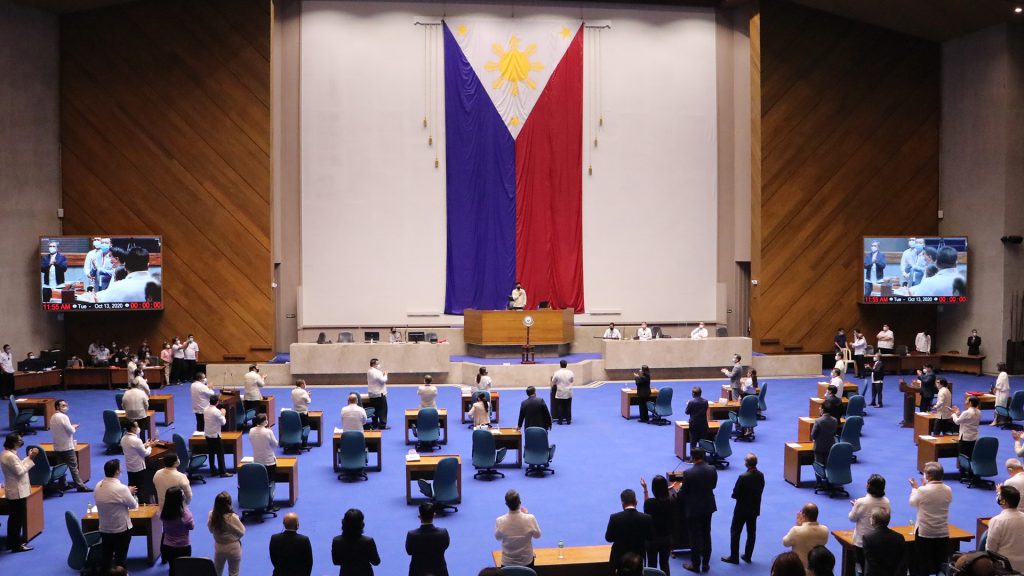A measure seeking to ease the financial burden of Filipino workers has been filed in the House of Representatives, proposing the early release of 13th month pay by June and the mandatory granting of a 14th month pay by December for employees in the private sector.

Manila, Philippines – In a move aimed at alleviating the financial strain on Filipino workers, House Bill 3808 has been filed, proposing the early release of 13th month pay and the implementation of a mandatory 14th month pay for employees in the private sector.
Authored by Trade Union Congress of the Philippines (TUCP) party-list Representative Raymond Mendoza, the bill seeks to provide private workers with their 13th month pay by June 24th and their 14th month pay by December 24th each year. The bill stipulates that the 14th month pay should be equivalent to at least one-twelfth of the employee’s total basic salary.
The explanatory note of the bill highlights the struggles faced by many Filipino workers: “Today, Filipino workers and their families continue to suffer from starvation poverty wages with most, if not all, regional minimum wages which fall below the government-set poverty threshold and no way near the family living wage.” It also addresses persistent underemployment, noting that “millions who have a job are still seeking another job or additional hours of work.”
The bill does allow for some flexibility, stating that “the frequency of payment of this monetary benefit may be the subject of agreement between employer and employee or any recognized/collective bargaining agent of employees.” This provision aims to accommodate existing agreements and collective bargaining arrangements.
READ MORE ARTICLES:
- House Bill Proposes Mandatory 14th Month Pay for Private Sector
- blithesome | definition, uses and translation
- Donald Trump Urges Ukraine to Make a Deal with Russia
- Second richest woman in the world, the $95 Billion Heiress You’ve Never Heard Of
- Hustisya sa Batang Babae, Natagpuang Patay sa Baybayin
- NBI Director Jaime Santiago Files Irrevocable Resignation Amid Allegations
This proposal comes as many Filipino families struggle with rising costs of living, and aims to provide additional financial support to help them meet their needs. The bill will now go through the legislative process, including committee hearings and debates, before it can be passed into law.
A new bill aiming to ease the financial burden on Filipino workers, House Bill 3808, proposes the early release of 13th month pay and the implementation of a mandatory 14th month pay for private sector employees. However, certain employers may be exempted.
Filed by Trade Union Congress of the Philippines (TUCP) party-list Representative Raymond Mendoza, the bill seeks to mandate that private workers receive their 13th month pay by June 24th and their 14th month pay by December 24th annually. The 14th month pay would be equivalent to at least one-twelfth of the employee’s total basic salary.
The bill includes exemptions for employers who are “distressed” or incurring substantial losses, as well as non-profit institutions and organizations whose income has consistently declined by over 40% of their normal income for the last two years. These exemptions are subject to authorization by the Department of Labor and Employment (DOLE). Additionally, employers of individuals paid purely on commission, boundary, or task basis are not required to provide the 14th month pay.
In a statement, Mendoza addressed these exemptions: “These exemptions prove that we heed the concerns of employers, especially those who are struggling. But let us be clear: when workers receive more and better benefits, they are not only happier but more motivated and productive at work. And when productivity rises, so does profitability. Working families become more comfortable as businesses and the economy grow stronger.”
The legislative process requires a bill to be read three times in the House. If passed, it can move to the Senate. If the Senate has already passed a similar bill, it goes directly to the President for final signature. Senate Minority Leader Vicente “Tito” Sotto III has also filed a similar bill for 14th month pay in the private sector with comparable exemptions.
The explanatory note of the bill emphasizes the financial challenges faced by Filipino workers, noting that many earn “starvation poverty wages” below the government-set poverty threshold. The bill aims to provide additional financial support to help families meet their needs amid rising living costs.
Sources: